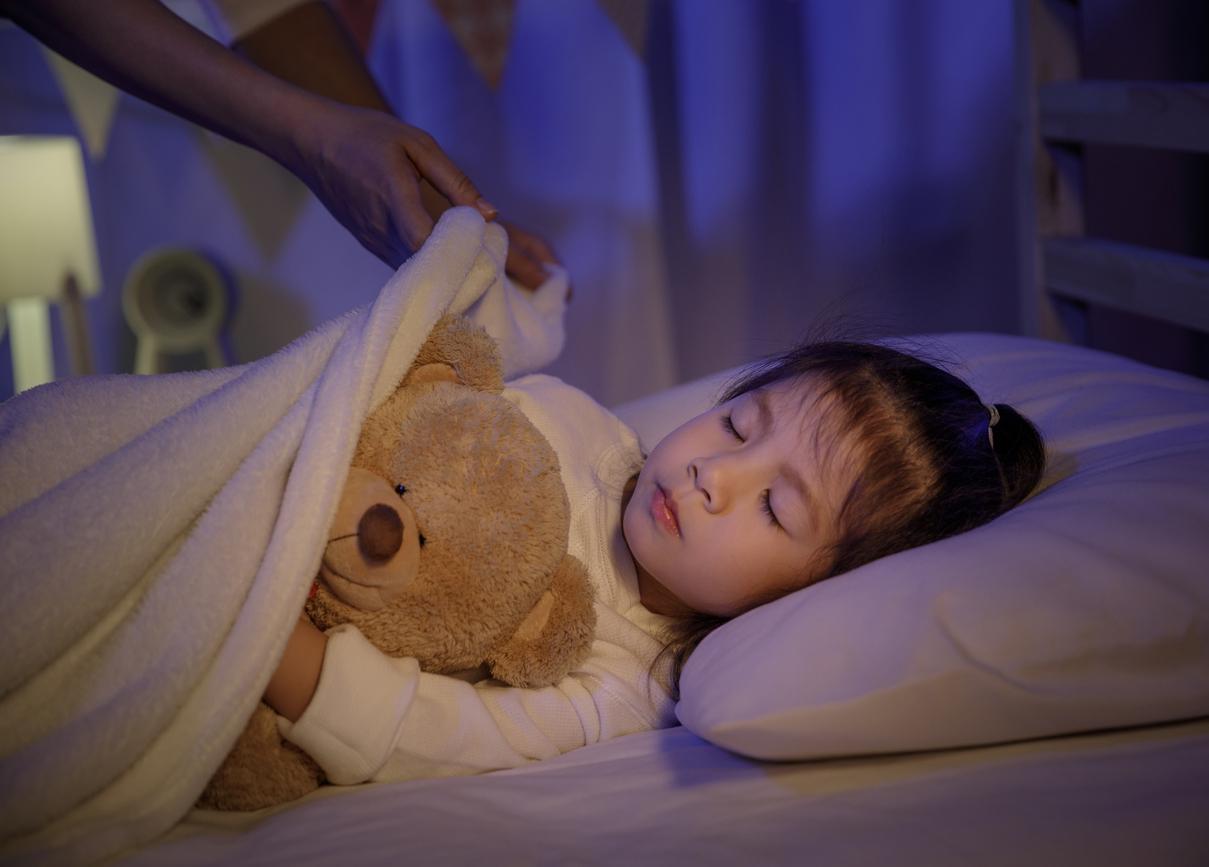Children following a “consistent” bedtime routine and falling asleep at a set time each night have better control over their emotions and behavior when they are stressed or doing activities with other people.

- Responsive parenting training during early childhood can help promote healthy sleep.
- Greater variability in the timing of sleep onset in children is linked to greater impulsivity and poorer emotion regulation.
- “All parents can establish clear norms and routines that enable them to raise healthier children.”
As many parents can attest, sleep can affect a child’s attitude. In a new study, published in the journal Journal of Developmental & Behavioral Pediatricsresearchers from Pennsylvania State University (United States) have shown that putting your child to bed at a fixed time is linked to better regulation of his emotions and behavior.
143 children wearing an actigraphy device participated in behavioral tasks
To reach this conclusion, they analyzed a research, called “INSIGHT”, designed for the prevention of obesity. The latter involved 143 children aged 6 years. When they were newborns, the mothers received training in responsive parenting, which involves meeting the child’s emotional and physical needs in a “warm” and “consistent” way. At age 6, the children wore an actigraphy device for 7 days to measure their nighttime sleep and activity. The devices monitored several aspects of sleep: the time the patient fell asleep, the time the child woke up in the morning, the midpoint of sleep time, how effectively the child stayed asleep, and how well the child stayed asleep. total amount of sleep the child received each night.
The young volunteers then participated in behavioral tasks assessing behavioral control, emotion regulation, and prosocial and antisocial behavior. In detail, they chose a toy he wanted to have fun with from a wide selection. The chosen toy was placed in a transparent, locked box. The children were given a set of keys, none of which unlocked the box. The team observed whether they tried each key or threw them away before trying them all. After four minutes, they were given a functional key to allow them to use the toy. At the same time, the researchers also observed the children decorating a photo frame with their parents. Behavior was identified as prosocial if they shared materials and cooperated with family members or antisocial if they destroyed craft supplies or talked back to their parents.
The more bedtime varies each evening, the less the child regulates his behavior and emotions
According to the findings, responsive parenting training during early childhood may help promote healthy sleep. “Children who had regular bedtimes were generally able to regulate their behavior and emotions. On the other hand, children whose bedtimes and sleep times varied widely showed more impulsivity and less control” , declared Adwoa Dadziemain author of the work. For example, a child whose bedtime varied by 20 minutes per night over the course of the study week generally displayed more self-regulation than a child whose bedtime varied by two hours over the course of the study week. week.
The authors said that some parents, those who work evenings for example, may not be able to participate in a bedtime routine with their children, but they can still take steps to be more responsive. “All parents can establish clear norms and routines that enable them to raise healthier children.”















